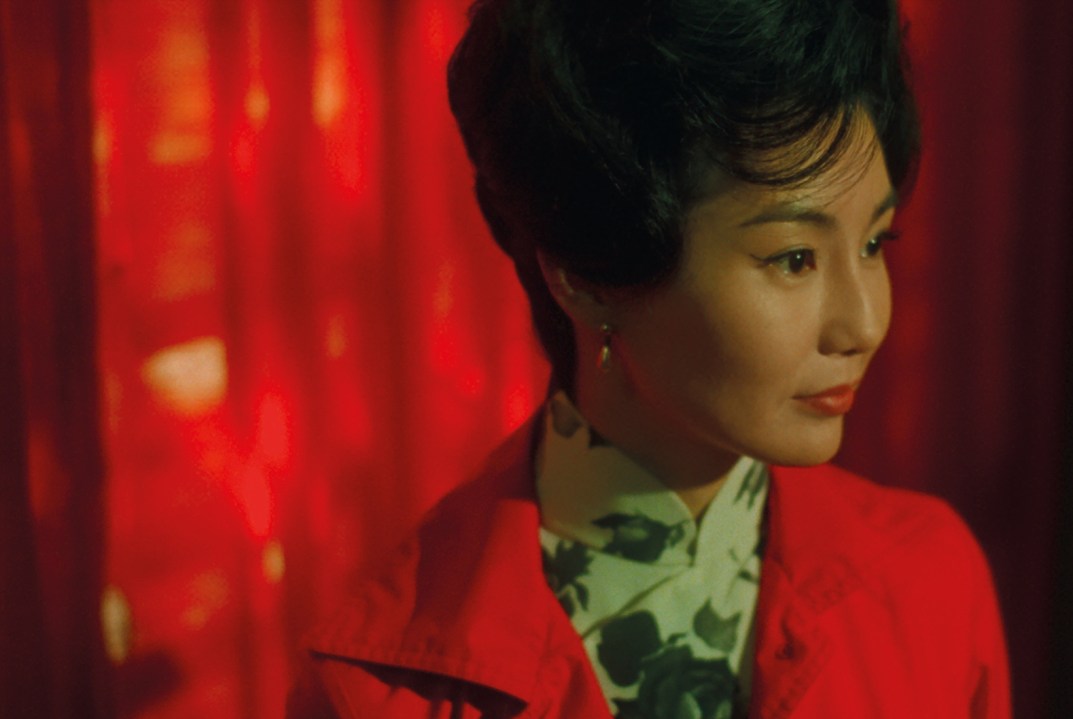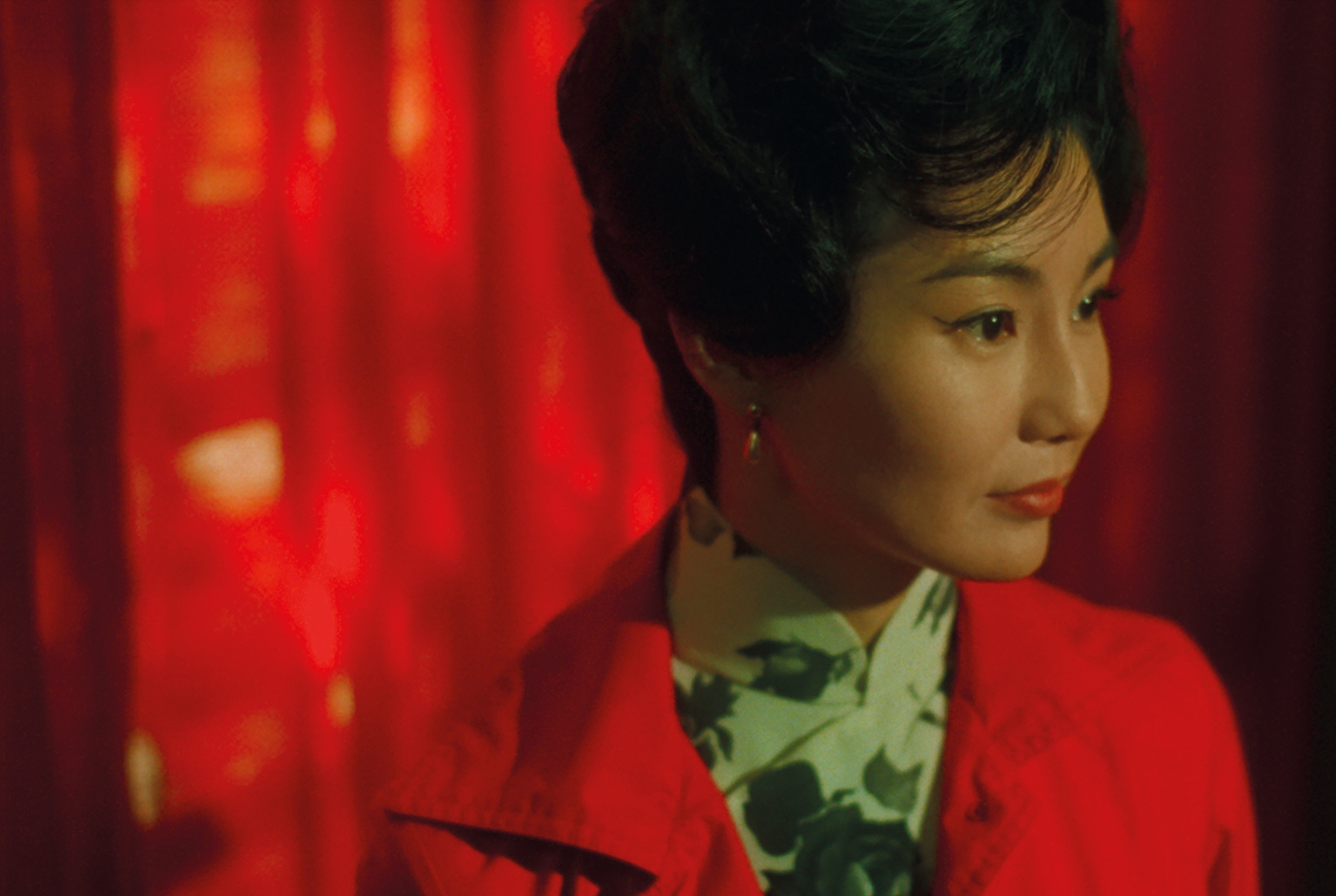The films of Wong Kar Wai are a kind of map of Hong Kong. In them the city becomes a magnificent metropolis of missed connections, a tempestuous port where ill-fated lovers cross paths like ships in the night. And Wong has filmed the city from so many angles, with such spatial precision, that if the People’s Republic were ever to grow impatient with the territory’s seditious tendencies and raze it to the ground, Hong Kong could be reconstructed, flawlessly, from Wong’s films alone.
A major retrospective on the Chinese film director is under way at the BFI and ICA. It couldn’t be more felicitous, since Wong Kar Wai is that most retrospective of filmmakers, always looking back, his characters ever in search of lost time. One look at the titles will tell you that: Days of Being Wild (1990), Ashes of Time (1994), and of course his nostalgic masterpiece, In the Mood for Love (2000), whose original Chinese title translates to a distinctly Proustian note: ‘the vanished years of flower.’
Wong, the greatest filmmaker to emerge from Hong Kong’s immense film industry, was actually born in Shanghai in 1958. He came to the island aged five — part of the exodus from the communist mainland — and still sees his adopted homeland through the wide eyes of a child.
Every Wong film is made with this conviction that music at once encodes and unleashes memories
Because Wong’s father was away working as a mariner, he was raised by gossiping women — leaving him with a taste for the melodrama lacing all his films. It filled the boy’s head with the romance of the high seas. His films are fascinated by the possibilities of migration; characters are always jumping ship to Singapore or Macau or the Philippines, to escape the burden of the past. His father later ran a nightclub, prompting Wong to imagine the nocturnal demi-monde of whores, gamblers, gangsters, crooners, hustlers and hitmen who would populate his early films.
Wong spent the 1980s as a hack screenwriter, riding the wave of popular cinema that gave us Jackie Chan stunts and John Woo action flicks. He wrote soap operas, cop thrillers, kung fu comedies. His directorial debut, As Tears Go By (1988), was a gangster romance.
His breakthrough, however, came when he began to meld the narrative experiments of Latin American fiction, especially Manuel Puig’s Heartbreak Tango, with the visual aesthetic of MTV. Critics credited the influence of the latter to the careening camera and frenzied editing of Wong’s return to the gangster genre with Chungking Express (1994) and Fallen Angels (1995), films championed by Quentin Tarantino in the West. Each film is a weird alloy of separate storylines welded together by geography alone. There are gangsters — a female drug smuggler, an amnesiac hitman — but also love-lorn cops, zany stalkers, a delinquent mute, all haunted by the past, especially old flames. There’s a sense of time as the villain. As one lovesick cop quips: ‘Everything comes with an expiry date. Swordfish expires. Meat sauce expires. Even clingfilm expires. Is there anything in the world which doesn’t?’
Reviewing these films, Roger Ebert claimed that Wong’s MTV-ish ‘pyrotechnics’ were style without substance. But the slow-mo, the freeze frames, the time-lapse photography, suggest a state of mind where time is out of joint. Wong even invented a new technique, called ‘smudge-motion’. By manipulating the camera’s shutter speed and duplicating frames, the image becomes blurred, the action stalled, accentuating the drama of a moment before it fades and is forgotten.
With Days of Being Wild, Wong began a trilogy of films about 1960s Hong Kong, a nod to the memory-scape of his parents — the Spanish-influenced Philippino singers in his father’s nightclub, and his mother’s favourite singer, Nat King Cole, with his Cuban serenades. Every Wong Kar Wai film is made with this conviction that music at once encodes and unleashes memories: encodes his own, unleashes ours.
The film introduced the two defining characters of Wong’s career: Maggie Cheung as Su Li-Zhen and Tony Leung as Chow Mo-Wan, who reprise their roles with In the Mood for Love, as neighbours in the same apartment, Su now a shipping clerk, Chow a journalist. It turns out their respective spouses are sleeping with each other.Ingeniously we never see them. Instead, like eavesdropping neighbours, we only ever hear them off-camera. In jealous curiosity, Su and Chow role-play how the affair started, but then themselves fall in love. It’s never consummated; they simply dwell on it in the monsoon rain — not a hot romance, a humid one.
It has the vividness of a memory. The camera is poised at a low angle, the height of a young child, the colour palette saturated to suit the child’s-eye vision. Shots of clocks are a leitmotif; time’s always running out, the clocks can never be turned back — as all of us know who have been doomed in love.
A sequel, 2046 (2004), portrays Chow as a playboy writer tormented by Su’s memory. Subsequent films have never returned to the glorious form of In the Mood for Love, the first masterpiece of the millennium. Audiences, desperate to see Chow and Su reunited, crave another sequel, but Wong refuses to revisit the tale. Among living artists, he is uniquely conscious of Horace’s insight that ‘even the words we are speaking now, thieving time steals away, and nothing can return’.
The Wong Kar Wai retrospective runs at the BFI and ICA until 29 July.







Comments